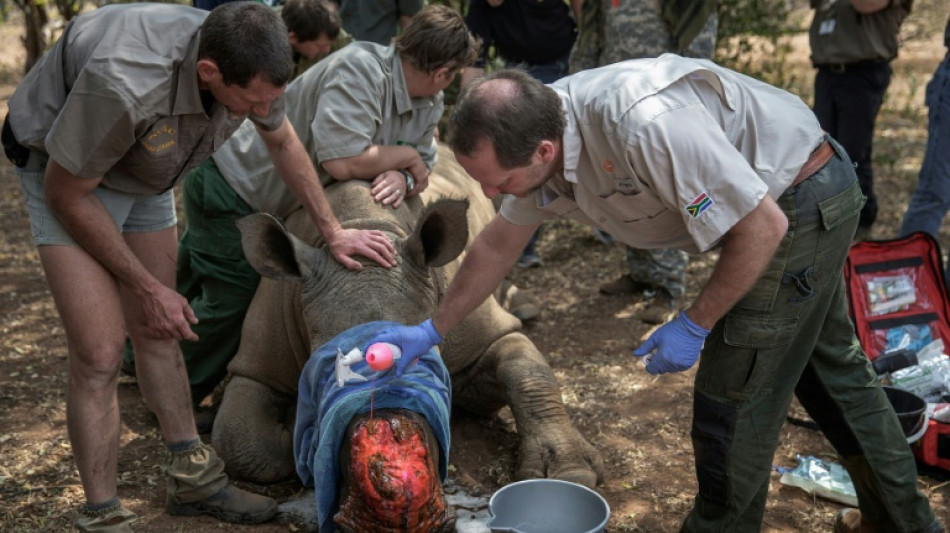
-
 Lillard matches NBA 3-point contest mark in injury return
Lillard matches NBA 3-point contest mark in injury return
-
NBA mulling 'every possible remedy' as 'tanking' worsens

-
 Team USA men see off dogged Denmark in Olympic ice hockey
Team USA men see off dogged Denmark in Olympic ice hockey
-
'US-versus-World' All-Star Game divides NBA players

-
 Top seed Fritz beats Cilic to reach ATP Dallas Open final
Top seed Fritz beats Cilic to reach ATP Dallas Open final
-
Lens run riot to reclaim top spot in Ligue 1, Marseille slip up

-
 Last-gasp Zielinski effort keeps Inter at Serie A summit
Last-gasp Zielinski effort keeps Inter at Serie A summit
-
Vinicius bags brace as Real Madrid take Liga lead, end Sociedad run

-
 Liverpool beat Brighton, Man City oust Beckham's Salford from FA Cup
Liverpool beat Brighton, Man City oust Beckham's Salford from FA Cup
-
Australia celebrate best-ever Winter Olympics after Anthony wins dual moguls

-
 Townsend becomes a fan again as Scotland stun England in Six Nations
Townsend becomes a fan again as Scotland stun England in Six Nations
-
France's Macron urges calm after right-wing youth fatally beaten

-
 China's freeski star Gu recovers from crash to reach Olympic big air final
China's freeski star Gu recovers from crash to reach Olympic big air final
-
Charli XCX 'honoured' to be at 'political' Berlin Film Festival

-
 Relatives of Venezuela political prisoners begin hunger strike
Relatives of Venezuela political prisoners begin hunger strike
-
Trump's 'desire' to own Greenland persists: Danish PM

-
 European debate over nuclear weapons gains pace
European debate over nuclear weapons gains pace
-
Newcastle oust 10-man Villa from FA Cup, Man City beat Beckham's Salford

-
 Auger-Aliassime swats aside Bublik to power into Rotterdam final
Auger-Aliassime swats aside Bublik to power into Rotterdam final
-
French prosecutors announce special team for Epstein files

-
 Tuipulotu 'beyond proud' as Scotland stun England
Tuipulotu 'beyond proud' as Scotland stun England
-
Jones strikes twice as Scotland end England's unbeaten run in style

-
 American Stolz wins second Olympic gold in speed skating
American Stolz wins second Olympic gold in speed skating
-
Marseille start life after De Zerbi with Strasbourg draw

-
 ECB to extend euro backstop to boost currency's global role
ECB to extend euro backstop to boost currency's global role
-
Canada warned after 'F-bomb' Olympics curling exchange with Sweden

-
 Ultra-wealthy behaving badly in surreal Berlin premiere
Ultra-wealthy behaving badly in surreal Berlin premiere
-
250,000 at rally in Germany demand 'game over' for Iran's leaders

-
 UK to deploy aircraft carrier group to Arctic this year: PM
UK to deploy aircraft carrier group to Arctic this year: PM
-
Zelensky labels Putin a 'slave to war'

-
 Resurgent Muchova beats Mboko in Qatar final to end title drought
Resurgent Muchova beats Mboko in Qatar final to end title drought
-
Farrell hails Ireland's 'unbelievable character' in edgy Six Nations win

-
 Markram, Jansen lead South Africa to brink of T20 Super Eights
Markram, Jansen lead South Africa to brink of T20 Super Eights
-
Guehi scores first Man City goal to kill off Salford, Burnley stunned in FA Cup

-
 Swiss say Oman to host US-Iran talks in Geneva next week
Swiss say Oman to host US-Iran talks in Geneva next week
-
Kane brace helps Bayern widen gap atop Bundesliga

-
 Ireland hold their nerve to beat gallant Italy in Six Nations thriller
Ireland hold their nerve to beat gallant Italy in Six Nations thriller
-
European states say Navalny poisoned with dart frog toxin in Russian prison

-
 Braathen hails 'drastic' changes after Olympic gold
Braathen hails 'drastic' changes after Olympic gold
-
De Minaur eases past inconsistent Humbert into Rotterdam final

-
 Eurovision 70th anniversary live tour postponed
Eurovision 70th anniversary live tour postponed
-
Cuba cancels cigar festival amid economic crisis

-
 Son of Iran's last shah urges US action as supporters rally in Munich
Son of Iran's last shah urges US action as supporters rally in Munich
-
Jansen helps South Africa limit New Zealand to 175-7

-
 Braathen wins unique Winter Olympic gold for Brazil, Malinin seeks answers
Braathen wins unique Winter Olympic gold for Brazil, Malinin seeks answers
-
Relatives of Venezuela political prisoners begin hunger strike after 17 freed

-
 Ten-man West Ham survive Burton battle to reach FA Cup fifth round
Ten-man West Ham survive Burton battle to reach FA Cup fifth round
-
International crew set to dock at space station

-
 Suryakumar says India v Pakistan 'not just another game'
Suryakumar says India v Pakistan 'not just another game'
-
Brazilian Olympic champion Braathen is his own man - and Norway's loss


Dehorning of S.African rhinos slashed poaching: study
The dehorning of rhinos resulted in a nearly 80-percent reduction in the poaching of the animals during a seven-year study in a major South African conservation area, researchers said Thursday.
Sawing off the sought-after horns was also a fraction of the cost of other counter-poaching measures such as deploying rangers or tracking dogs, according to the study published in the journal Science.
The study was carried out between 2017 and 2023 in 11 reserves around South Africa's famed Kruger National Park that protect the world's largest rhino population.
During this period, some 1,985 rhinos were poached in the reserves in the Greater Kruger area despite $74 million spent mostly on reactive law enforcement measures that netted around 700 poachers, it said.
By contrast, dehorning 2,284 rhinos cut poaching by 78 percent at just 1.2 percent of that budget, said the study published by the American Association for the Advancement of Science.
"Some poaching of dehorned rhinos continued because poachers targeted horn stumps and regrowth, signalling the need for regular dehorning alongside judicious use of law enforcement," the study said.
South Africa is home to most of the world's rhinos, including the critically endangered black rhino, and is a hotspot for poaching driven by demand in Asia where the horns are used in traditional medicine.
Rhino horn is highly sought after on the black market, where the price by weight rivals that of gold and cocaine.
Alongside ivory, the horns are coveted as status symbols or used in traditional medicine for their supposed aphrodisiac properties.
"Ongoing socioeconomic inequality incentivises a large pool of vulnerable and motivated people to join, or poach for, criminal syndicates even when the risks are high," the researchers said.
Corruption also played a role with gangs receiving insider tips to evade detection and arrest, they said.
- Impacts unclear -
"Although detecting and arresting poachers is essential, strategies that focus on reducing opportunities for and rewards from poaching may be more effective," the study said.
It added, however, that "the effects of dehorning on rhino biology are still unclear, with present research suggesting that dehorning may alter rhino space use but not survival and reproduction."
The co-authors of the study are from South Africa's Nelson Mandela University and the University of Cape Town, and various conservation groups including the Wildlife Conservation Network and United Kingdom's Save the Rhino International.
South Africa had more than 16,000 rhinos at the end of 2023, mostly white rhinos, according to government data.
But at least 34 rhinos were killed each month, the environment minister said in May.
In 2024 South African scientists injected radioactive material into live rhino horns to make them easier to detect at border posts in a pioneering project aimed at curbing poaching.
The radioactive material would not impact the animal's health or the environment in any way but make it poisonous for human consumption, according to the University of the Witwatersrand's radiation and health physics unit which spearheaded the initiative.
Black rhinos are listed by the International Union for Conservation of Nature (IUCN) as critically endangered.
A.Malone--AMWN


